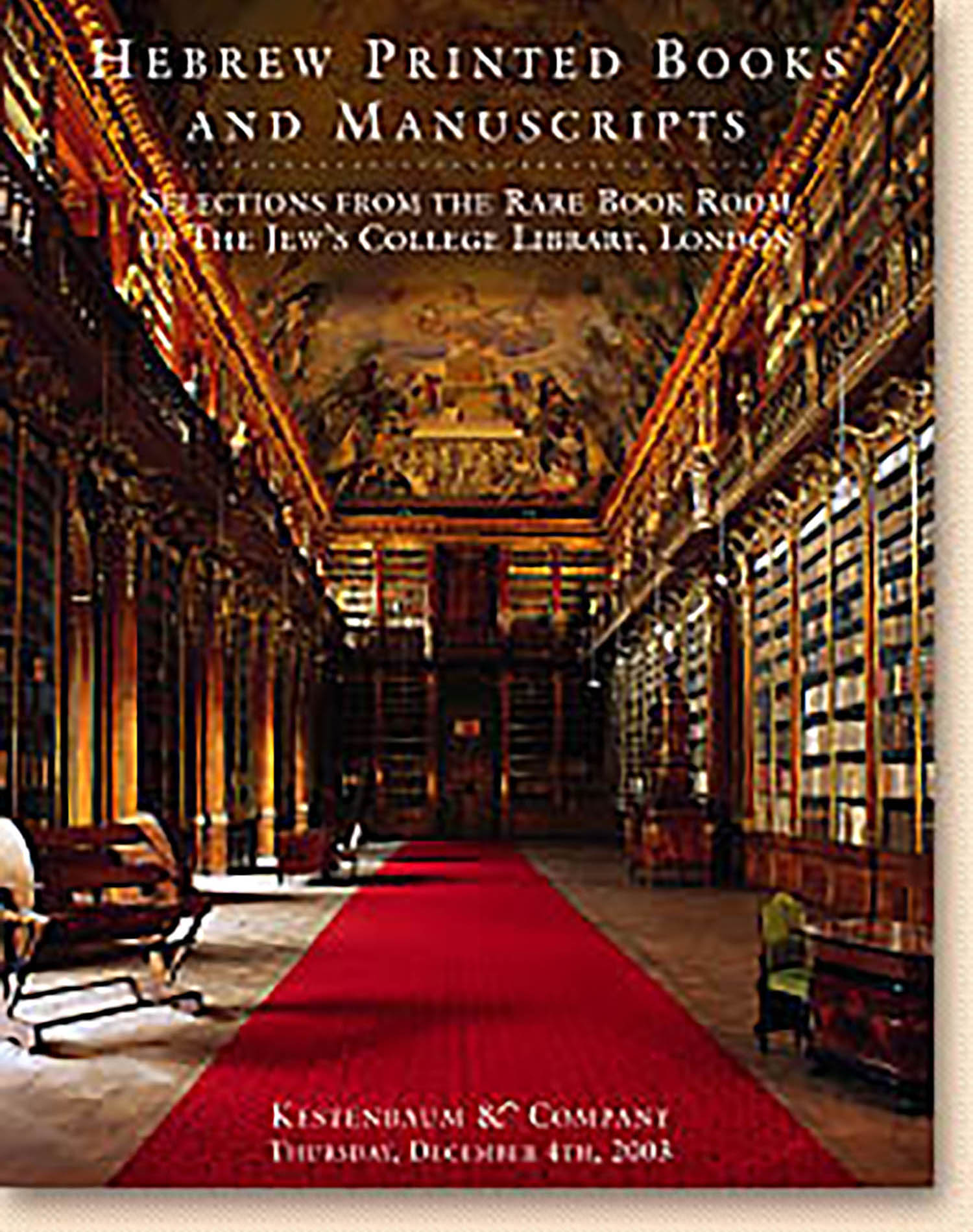Zemiroth Israel [religiouspoetry]

AUCTION 21 |
Thursday, December 04th,
2003 at 1:00
Kestenbaum & Company Holds Inaugural Auction of Hebrew Printed Books & Manuscripts at Their New Galleries
Lot 189
NAJARA, ISRAEL
Zemiroth Israel [religiouspoetry]
Venice: Giovanni di Gara 1599
Est: $1,000 - $1,500
PRICE REALIZED $3,800
First appearance of Ya-h Ribon Olam (f.7r), one of the most popular Sabbath Zemiroth (table hymns) and since set to innumerable melodies.
Najara was the first poet to compose and organize his piyutim according to the Near Eastern “maqam” style of musical composition. Born in Damascus c.1555, his compositions are distinguished by their deep religiosity, references to Jewish suffering and yearning for redemption. Najara learned much from the great Jewish poets of the Spanish-Arabic period, but nevertheless frequently employed original forms and themes. Despite the wide circulation of his poetry, particularly among oriental communities, his occasional imitation of foreign styles and use of erotic terminology was attacked by Menachem di Lonzano and especially Chaim Vital who indeed forbade the singing of Najara’s songs entirely. See I. Zinberg, The Jewish Center of Culture in the Ottoman Empire (1974) pp.94-106; Carmilly-Weinberger pp.217-8; EJ, XII cols.798-9
Israel Najara served as rabbi of Gaza. Upon his death, he was succeeded by his son Moses. Moses’ son, Jacob Najara, inherited the rabbinate of Gaza, and was instrumental in the early days of the Messianic movement surrounding Shabbetai Zevi and his “prophet” Nathan of Gaza. Zevi was especially fond of Israel Najara’s hymns. One of these hymns, Yigaleh Kevod Malkhutho, became a kind of anthem which Sabbatian believers used for over a century. The Frankists, a Polish branch of the Sabbatian movement who converted to Catholicism, sang the Hebrew song “Yiguleh” (Galician pronunciation) within the walls of the Catholic Church in Lublin! See Gershom Scholem in Ignace Goldziher Memorial Volume I (Budapest, 1948), p. 41-44; idem, Sabbatai Sevi, pp. 355-6.
